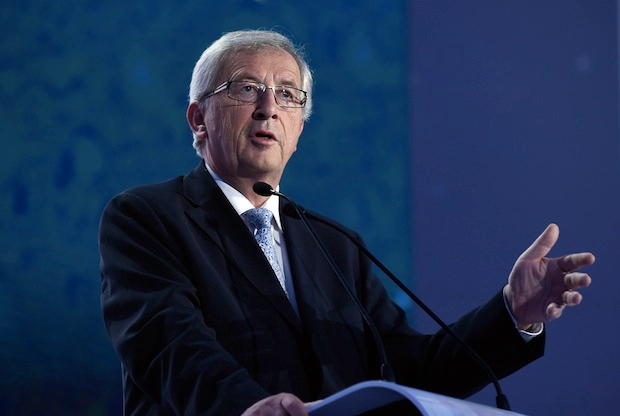Jean-Claude Juncker delivered a speech to the European Parliament this morning. Its content was, from the British government’s perspective, provocative. Juncker had one watchword: integration: and a clear idea of how to achieve it. He expressed belief in:
- Tax harmonisation (especially on corporate tax rates)
- Integration of capital markets
- Energy integration and the diversification of energy supply
- 300bn euros extra spending and a commitment to the ‘social market’
- A financial transaction tax
- No new member states for 5 years (how about that, Mr Salmond?)
- The euro as a unifying force across Europe
- Freedom of movement
In some respects it was a slightly strange speech for Juncker, a man of the centre-right, to have given. A spending stimulus, financial transaction tax: these are agents of social democracy. Indeed, Juncker said that he was a ‘great fan’ of the social market economy, and added that Europe needed to rehabilitate communitarianism. It was as if his words had been ghosted by the spirit of Jacques Delors.
This was, then, a speech crafted to build alliances with the centre-left and ‘new Europe’, which believe spending and integration to be vital to their interests. Eurosceptics were suitably angered — Ukip MEPs heckled Juncker throughout, while Daniel Hannan poured scorn on Juncker’s conception of ‘reform’, adding that David Cameron was wholly right to oppose his candidacy.
But, there were sections of the speech which might have appealed to the more hawkish nations of northern Europe. The principle of subsidiarity was a frequent presence. Juncker said, in terms, that the EU must not waste itself on minutiae and must concentrate instead on big issues. He praised the minimum wage, but added that it was for member states to determine; ergo, there would be no pan-European minimum wage. There would, however, be an assault on European red tape, especially that which constrains SMEs. And although Juncker defended the principle of freedom of movement, describing it as an ‘opportunity’ to stimulate growth, he also explicitly stated that it is for member states to police their welfare systems to stop abuses.
So where does this leave Britain? There is, obviously, an opportunity for Philip Hammond and Lord Hill, Britain’s new commissioner, to extract concessions from the Commission in exchange for support for Eurozone integration and ‘social Europe’. Juncker plainly believes in subsidiarity; it is for the British government to push him and regain powers (as yet wholly undefined). Whether or not Britain gets its way is another matter.
Moreover, are Juncker’s integrative measures inimical to British interests? Tax harmonisation would only apply to the Eurozone; but that does not mean that its potential damage would be limited to the Eurozone. The proposed Financial Transaction Tax is a case in point. Britain did not sign up to the proposal, and continued to oppose it through the courts because the government believes that it would harm the business of British companies trading within the tax area. There are several possible points of contention here, which may make a Brexit more likely.
Would any of the integrative measures trigger the referendum lock by requiring a treaty change? EU policy experts suggest that there is scope for these measures under existing treaties; but, the question cannot be meaningfully answered unless or until a firm legislative proposal is made.
This prompts a final question: will the measures contained in Juncker’s politically dextrous speech ever see the light of day? A rhetorical exercise, designed to build alliances and appeal to all things and all men, is but the first and easiest step on the long road to reform.






Comments